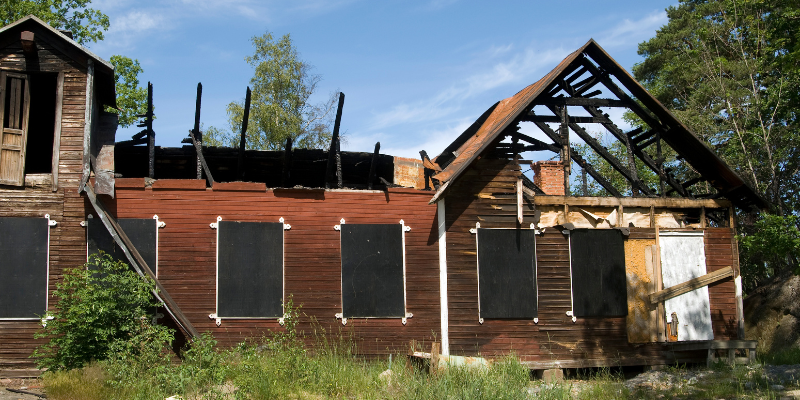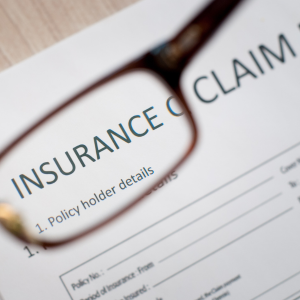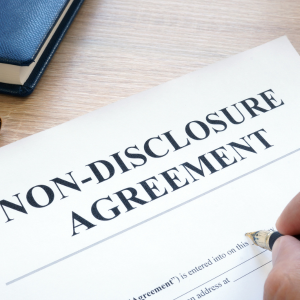
Selling a Fire-Damaged House in Alexandria, VA
In Alexandria, VA, selling a house that was damaged by fire comes with its own set of problems and unexpected chances. To get through this process, you need to know not only the local real estate rules, but also what buyers want and how the market is changing. If buyers aren’t ready, they could make mistakes like delays, low offers, or problems with compliance that cost them a lot of money and hurt their bottom line. Homeowners can speed up the selling process, get the right buyers, and get a better result if they know Virginia’s real estate laws and follow good tactics.
This guide offers practical, experience-based advice to help property owners avoid common pitfalls and successfully sell a fire-damaged house in today’s competitive market.
Key Highlights
- Assessing fire damage requires identifying both smoke and structural damage, which are critical for planning repairs and filing insurance claims.
- Thorough documentation—photos, videos, and detailed inventories—strengthens insurance claims and helps support fair compensation.
- Choosing between repairing or selling the home as-is directly impacts sale price and marketability.
- Compliance with Virginia’s disclosure and permitting laws builds buyer confidence and prevents legal issues.
- Effective marketing should emphasize the property’s strengths, location, and potential, appealing to investors and value-driven buyers.
Assessing Fire Damage in Your Alexandria House
Understanding the full scope of fire damage is the foundation of any selling strategy. Before deciding whether to repair or sell, you need a clear picture of how the fire has affected the structure, systems, and interior of your home. From assessing smoke penetration to checking for structural weaknesses, this process sets the stage for insurance claims, repair estimates, and informed pricing decisions. A well-documented assessment not only speeds up insurance approvals but also positions you for a smoother selling experience.
Understanding the Extent of Damage
The first step in managing a fire-damaged property is conducting a thorough assessment. Even minor fires can cause hidden structural issues or smoke damage that may not be immediately visible. Engage a certified home inspector or fire restoration specialist to examine every part of the property—including walls, ceilings, insulation, and ventilation systems. Smoke residue can linger in HVAC systems, reducing air quality and creating long-term odor problems, while intense heat can compromise framing, wiring, and plumbing.
A lot of the older homes in Alexandria have historic design or old materials that need to be looked at by experts. Inspectors can help you figure out which parts of the building can be saved and which ones need to be rebuilt. Besides looking at the structure, you should also look at any damage to the fixtures, furniture, and tools. Soot and smoke can get deep into rugs, drapes, and furniture, which means they may need to be replaced completely.
A comprehensive professional assessment ensures safety and helps you make financially sound decisions about repairs or resale. It also provides valuable documentation for insurance purposes, which becomes essential later in the process.
Documenting Damage for Insurance Claims

An important part of a good fire insurance claim is having accurate paperwork. As soon as the fire is out, take thorough pictures and videos of all the damaged areas, including damage that can be seen and damage that is deeper. Take pictures in every room, paying special attention to structure elements, smoke stains, and damage caused by heat.
Make a list of all the broken personal property you have, including how much it cost to buy, how old it is, and how much you think it is worth now. If you can, include receipts or bank records as proof that you own the item.
This documentation will help your insurance adjuster evaluate the loss and speed up the settlement process.
Timely communication with your insurance company is critical. Report the incident promptly, submit all required claim forms, and follow up regularly to track progress. If the claim becomes complex or the damage extensive, consider hiring a public adjuster to represent your interests and ensure you receive a fair settlement.
Proper documentation and communication help minimize disputes and give you financial clarity for your next decision—whether to rebuild or sell the property as-is.
Key Decisions Before Selling a Fire-Damaged House
Once you’ve assessed the extent of damage, you’ll face two major decisions:
- Whether to repair or sell the home in its current condition, and
- When to list it for sale.
This choice will impact your net return, timeline, and the types of buyers you attract. To sell your house fast in Alexandria while maximizing your profit, it’s important to understand your financial goals and the current conditions of the Alexandria real estate market. Striking the right balance between cost, effort, and potential return is key.
Evaluating Repair vs. Selling As-Is
One of the most important decisions you’ll have to make is whether to fix up your house or sell it as is. Fixing up the house can make it more marketable and appeal to a wider range of people, but it takes a lot of time and money up front. Before you decide to make any changes, get professional repair quotes and compare them to the amount the house could sell for after the changes.
If the cost of repairs exceeds expected profit margins—or if you prefer a faster transaction—selling the home as-is may be the better option.
Selling a house “as is” can bring in investors and cash buyers who specialize in fixing up run-down homes. These buyers know the risks and may act quickly if they think they can make money. In exchange, the sale price is usually cheaper, but the process is faster and costs less up front.
No matter which path you take, you must be honest. Tell everyone about the fire, including what started it, how bad the damage was, and what fixes were done. Being honest with buyers builds trust and keeps you out of disagreements after the sale.
Ultimately, the decision should align with your financial position, timeline, and comfort level with renovations.
Choosing the Right Time to Sell
When you sell your fire-damaged home can have a big impact on how quickly and for what price it sells. In Alexandria, the busiest times for real estate are usually in the spring and early summer, when there are the most buyers. Even if your home is broken, listing it during these months can help it get more attention and offers.
But timing isn’t just about the time of year. Think about things like interest rates, the number of homes for sale in the area, and buyer trust. Think about how long it will take to clean up or fix up the property in part if it needs it. If you move quickly after a fire, when investors are looking for properties that need work, you might be able to sell the house faster.
Watch the area listings and economic indicators to get a sense of the market’s direction. When interest rates are low and people want to buy investment homes in large numbers, selling sooner might lead to higher returns.
Strategic timing ensures that you enter the market when buyer activity and confidence align with your selling goals.
Navigating Virginia’s Legal Requirements
Virginia has strict regulations when it comes to property disclosures and licensing, especially for homes affected by fire damage. Understanding these laws not only keeps you compliant but also helps build buyer confidence and prevents future legal issues. If you’re looking to avoid the hassle and sell quickly, we buy houses fast in Virginia.
Disclosure Laws for Fire-Damaged PropertiesVirginia Residential Property Disclosure Act

In Virginia, sellers have to tell buyers about any known serious problems with the property, like damage from fire, smoke, or the structure. Under the Virginia Residential Property Disclosure Act, sellers must give clear and truthful information about the home’s condition.
If you’re selling a house that was damaged by fire, you have to tell people who want to buy it things like what started the fire, how bad the damage was, and what repairs were made after the fire.
Providing buyers with proof, such as inspection reports, statements from the fire department, or contractor invoices, makes your disclosure more credible and gives them peace of mind that the property has been professionally evaluated.
If you don’t tell the truth about problems you know about, you could be sued for fraud or misrepresentation. This could cost you money or end your contract.
Not only is open communication required by law, it also helps people trust each other. People who want to buy something like honesty are more likely to follow through with a deal when they have all the information. Being open can make the difference between a deal falling through and one that goes through in Alexandria and other competitive markets where buyers move quickly.
Obtaining Necessary Permits and Certifications
Any repairs made to a fire-damaged property must comply with Virginia’s building codes. That means securing the proper permits for structural, electrical, and plumbing work. Skipping this step can create serious problems during inspections or title transfers, and may even halt a pending sale.
To make sure all of your changes meet code, work with licensed contractors who know how to get permits in Alexandria. Keep copies of permits and inspection approvals as proof that you followed the rules. Buyers will probably ask for these during the due research process.
Plus the required permits, buyers can feel even better about the safety and performance of the home with optional certifications like electrical safety or energy saving verifications. Professionalism and a higher sense of value can be shown by these qualifications.
Completing all legal and regulatory steps before listing the property smooths the transaction process and enhances your credibility as a seller.
Pricing a Fire-Damaged House in Virginia
Setting the right price for a fire-damaged property requires a balance between realism and strategy. You must account for the cost of repairs, market conditions, buyer psychology, and local demand.
Proper pricing ensures the property attracts serious buyers while helping you achieve fair market value.
Factors Influencing the Property’s Value
The value of a Virginia home that has been damaged by fire depends on a number of things. The most clear is how bad the damage is. Repairs to the structure, problems with the electricity, and cleaning up after smoke damage all affect the total value. Professional checks are necessary to find out how much repairs will cost and if there are any safety issues that might make buyers less interested.
Another important thing is the location. In popular places like Alexandria, where being close to Washington, D.C., public transportation, and good schools makes homes more desirable, even ones that are damaged can still be worth a lot. A house in a good location is often bought by investors who want to fix it up and sell it for a profit.
Lastly, think about how the market is moving and how buyers feel. Some people don’t like homes that have been damaged by fire, so it’s important to address those concerns through clear paperwork and repairs. Giving buyers an idea of how much it will cost to fix up the house or showing them finished safety inspections can help them see what it could be.
Combining these insights allows you to set a price that reflects both the property’s challenges and its opportunities.
Competitive Pricing Strategies
To set prices that work, you need to do both study and be flexible. First, look at recently sold homes in Alexandria that are similar to yours. These are called “comps.” Look for homes that are similar but have been damaged or need a lot of work done on them. These pieces of information will help set a price standard.
One way to get people interested and maybe even get more than one offer is to list the property a little below what it’s worth on the market. This can work especially well if there is a lot of investment interest in your area. But setting the price too high can backfire, leaving the house on the market for too long and lowering buyers’ trust.
Be transparent in your listing about the property’s condition. Include repair cost estimates, contractor reports, or even conceptual renovation plans to help buyers see the potential return on investment.
Targeting cash buyers or real estate investors can also shorten the sales process since these buyers typically skip financing contingencies and can close faster.
By combining competitive pricing, honesty, and an investor-focused strategy, sellers can achieve a balanced outcome that meets financial and timing goals.
Effective Marketing of a Fire-Damaged Property
To sell a house that has been damaged by fire, you need to be creative and think about the possibilities instead of the problems. The goal is to get buyers who see value in the chance, like investors or homeowners who have done renovations before. Even a broken-down house can stand out in the Alexandria market with the right marketing and design.
Highlighting the Property’s Potential
Instead of focusing on what was lost, emphasize what remains and what could be achieved. Highlight the property’s location, lot size, and architectural character—aspects that can’t be replaced and often hold the greatest value.
Showcase nearby amenities such as schools, parks, or public transportation, reinforcing the home’s long-term appeal.
Use professional photos and, if possible, virtual tours to present the property clearly and confidently. Focus on the parts of the home that remain intact and illustrate the potential for redesign or expansion. Including conceptual renovation renderings can help buyers visualize what’s possible after restoration.
If you’ve completed partial repairs or safety inspections, make those updates known. Buyers appreciate evidence that the property has been stabilized and is ready for renovation.
By shaping a forward-looking narrative—transforming the home from a damaged structure into a promising investment—you attract buyers who see opportunity instead of risk.
Targeting the Right Buyer Audience

Marketing success depends on reaching the right audience. In most cases, fire-damaged homes appeal to two primary buyer groups: real estate investors and budget-conscious homebuyers looking for fixer-uppers.
Investors want clear data. Provide them with inspection reports, cost breakdowns, and potential resale value projections. Offering flexibility on terms or a fast closing timeline can make your property more attractive to this group.
For individual homebuyers, emphasize the emotional appeal and potential for customization. They may be willing to take on a project if they see the chance to create their dream home in a desirable neighborhood. Share success stories or renovation examples to inspire confidence.
Use multiple channels—online listings, real estate websites, and local real estate agents specializing in distressed properties—to maximize exposure.
Tailoring your message to the specific motivations of each buyer type ensures that your marketing resonates and leads to faster, more effective results.
Selling a fire-damaged house in Alexandria takes preparation, honesty, and the right strategy. By carefully evaluating the extent of the damage, understanding your legal obligations, setting a fair price, and targeting the right buyers, you can turn a challenging situation into a successful sale. With professional guidance and a thoughtful approach, even a fire-damaged property can become a valuable opportunity in Virginia’s strong real estate market.
At 4 Brothers Buy Houses, we buy houses for cash in any condition — including fire-damaged homes. Contact us today to get a fair, no-obligation offer and sell your property quickly.
FAQs
What are the challenges of selling a fire-damaged house in Alexandria, VA?
To sell a fire-damaged home, you need to keep track of paperwork, know the local disclosure laws, decide whether to fix the damage or sell it as-is, and find the right buyers. Taking care of these things correctly can help the sale go more smoothly and bring in more money.
How should you document fire damage for insurance claims?
Take clear photos and videos of all affected areas and maintain a detailed inventory of damaged possessions with estimated values. Provide receipts or proof of purchase whenever possible to support your claim and speed up the settlement process.
Should you repair a fire-damaged house or sell it as-is?
It depends on the extent of the damage and your financial situation. Repairs can increase market value and attract more buyers, but selling as-is offers a faster, less costly route, especially if investor demand is strong.
Why is compliance with Virginia’s disclosure and permit laws so important?
Full disclosure protects you legally and builds trust with buyers. Permits confirm that any repair work meets state and local safety standards, preventing delays or legal disputes during closing.
How can marketing help sell a fire-damaged property?
Strategic marketing focuses on the property’s potential, emphasizing its location, lot, and structural possibilities. By targeting investors and motivated buyers, you can overcome the stigma of fire damage and secure strong offers.
Helpful Alexandria Blog Articles
- How Much is Home Staging Cost in Alexandria, VA
- Can I Sell My House If I’m Behind on Payments in Alexandria, VA?
- How Long After an Appraisal Can You Close in Alexandria, VA?
- How To Attract Buyers For Distressed Property in Alexandria, VA
- How Much Does A Divorce Home Appraisal Usually Cost in Alexandria, VA
- Common Mistakes When Selling A Fire-Damaged House in Alexandria, VA
- Can Heir Property Be Sold in Alexandria, VA?
- Selling a House with Solar Panels in Alexandria, VA
- Do You Need a Deed to Sell a House in Alexandria, VA?
- How To Sell An Investment Property in Alexandria, VA
- Capital Gains Tax After Selling A House in Alexandria, VA

